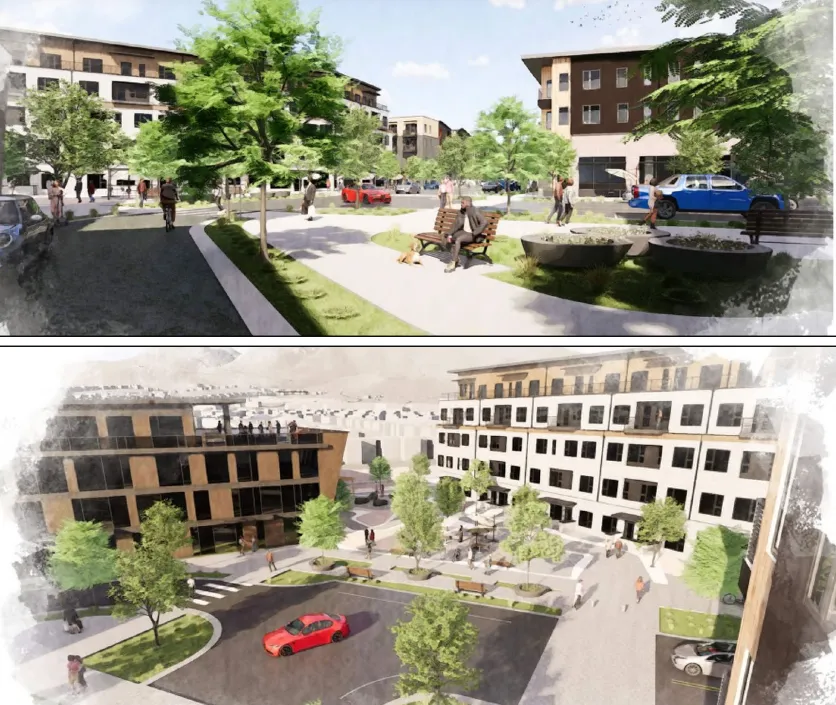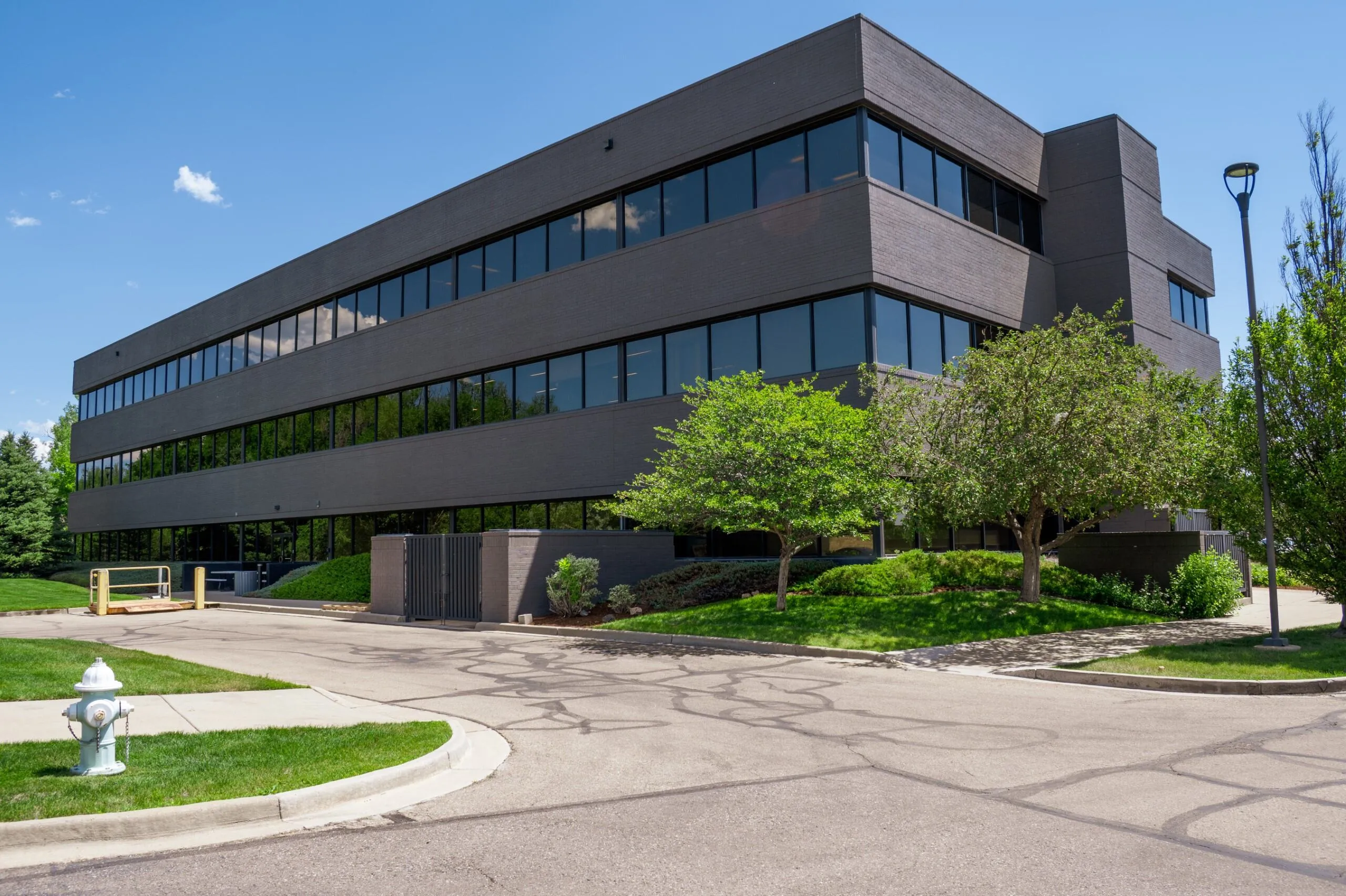‘Save the Dark Horse’ effort gains momentum in redevelopment hearing

BOULDER — A developer’s proposal to redevelop one of Boulder’s most-traveled corners, one that has been home to the World Famous Dark Horse Bar for nearly five decades, into a mostly residential district faced heavy criticism this week from locals and skepticism from city planning officials.
Does Boulder need more housing (especially housing that’s actually attainable for everyday students and professors)? Yes, of course, many of the several dozen participants in Tuesday’s Boulder Planning Board meeting agreed.
But does the conceptual proposal for redevelopment at Williams Village — a roughly 10-acre site on the 2900 block of Baseline Road that’s currently home to a Sprouts Market, the Dark Horse, Cosmos’s Pizza, a liquor store, a bank and other businesses — achieve that?
SPONSORED CONTENT
And, furthermore, is it worth jeopardizing one of the most iconic bars for University of Colorado students? In what way should Boulder’s eclectic, college-town-past jibe with the city’s evolving present and yet-to-be-shaped future? Those, and many others, were the weighty questions before Boulder Planning Board members this week.
The Williams family, which owns the property that includes a significant amount of underutilized surface parking area, and its development partner Morgan Creek Ventures, seek to essentially scrape the Baseline site to build 726,000 square feet of space in six buildings, four and five stories tall, designed to accommodate:
- 610 residential units, divided between market-rate and student apartments.
- 77,000 square feet of commercial space, with more than 7,000 square feet intended for restaurants.
- A 76,000-square-foot hotel.
- Two parking structures and underground space for nearly 800 vehicles.
“It’s really an old ‘70s shopping center that’s 100% paved and impervious,” Morgan Creek principal Andy Bush told Boulder planning officials.
Bush acknowledged the importance of the Dark Horse to the CU community, and he, along with other redevelopment project representatives, said the goal is to find a place for the beloved burger and beer joint elsewhere on the site.
“We’re open to looking at a new site and a Dark Horse 2.0,” he said.
Pledges of space for a Dark Horse 2.0, which the developers said could benefit from the presence of proposed adjacent outdoor gathering spaces, were little consolation to those who made — and then, perhaps, promptly misplaced — precious memories in the cavernous Dark Horse 1.0.
“What’s next? The Sink?” CU graduate Hunter Miller asked Boulder planning officials during Tuesday’s public hearing, a reference to another landmark watering hole for the city’s student population. Boulder officials must ultimately take a stand in the face of seemingly unpopular redevelopment efforts, he said. “That line is the Dark Horse.”
So much of the Boulder “community has already changed. It’s been homogenized, the character has been removed from it,” Matthew Jensen said. ”… The yuppification of Boulder needs to stop.”
Despite the community affection on display this week, the Dark Horse and its adjacent businesses have long “struggled and underperformed,” Bill Holicky, a principal with redevelopment partner Coburn Architecture, told Boulder planning officials while stressing that the Williams family will prioritize the relocation of the Dark Horse.
Critics of the redevelopment proposal questioned whether that prioritization will survive the early phases of the project, which, despite the longevity of the Dark Horse, does not sit upon a municipally landmarked historic site. Project representatives said the phasing of construction is still in early phases, but the residential elements are likely to be built before commercial spaces.

“Developers promise concessions but rarely deliver on them,” Ben Herman said during the public comment session.
The homes that the developer proposes would include “285 student housing units and 325 non-student housing units,” according to city planning documents. Morgan Creek, in a memo to planning officials, indicated that it plans to pay cash in lieu of building on-site affordable housing.
CU students, faculty and neighborhood residents were dubious about whether these new units would improve the notorious housing-affordability problem around CU and throughout Boulder.
The redevelopment proposal “looks like the gentrification of the area I live in and not the sort of thing I can afford,” recent CU doctoral degree recipient Michael Grayson said.
Rather than addressing the needs of residents whom Boulder officials have identified as struggling with housing affordability, “the people who will be living there are rich kids whose parents are from California and Texas who will be buying them property there,” Jensen said.
The Boulder Planning Board, at this early stage in the potential redevelopment process, plays a relatively constrained role. The body, during the conceptual-review process, offers recommendations, but takes no official position on the redevelopment proposal.
The “thinness and lack of design” required during the conceptual phase of the municipal regulatory process “plays into community fears,” board member Mark McIntyre said. The remark was not necessarily a comment on the project in question, but more a reflection of the nascent nature of the proposal and Boulder’s entitlement process.
“It’s really hard to comment on Lego buildings,” Boulder Planning Board member Sarah Silver said. “… We almost don’t know what we’re responding to.”
Still, Boulder Planning Board members struck a position Tuesday against serving as a rubber stamp for the redevelopment effort.
“I would suggest that it be a smaller development with more neighborhood-serving retail,” Silver said. “… Take it off steroids, add some more commercial space.”
Boulder Planning Board member ML Robles was explicit in her hesitance to support the proposal: “This project is not meeting the intent of a neighborhood center.”
Perhaps most importantly for generations of CU alumni, Boulder planning officials recommended that the property owner and developer find a way to preserve the Dark Horse in its current building.
Regardless of any decision eventually made by city officials, only bones of the Dark Horse structure can be maintained through the public preservation process — not the business itself.
BOULDER — A developer’s proposal to redevelop one of Boulder’s most-traveled corners, one that has been home to the World Famous Dark Horse Bar for nearly five decades, into a mostly residential district faced heavy criticism this week from locals and skepticism from city planning officials.
Does Boulder need more housing (especially housing that’s actually attainable for everyday students and professors)? Yes, of course, many of the several dozen participants in Tuesday’s Boulder Planning Board meeting agreed.
But does the conceptual proposal for redevelopment at Williams Village — a roughly 10-acre site on the 2900 block of Baseline Road that’s currently home…





